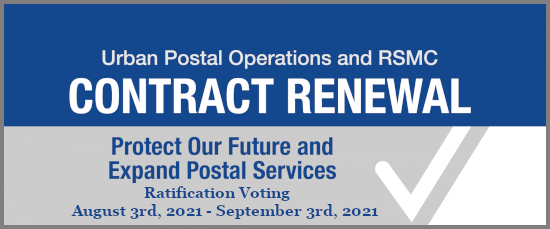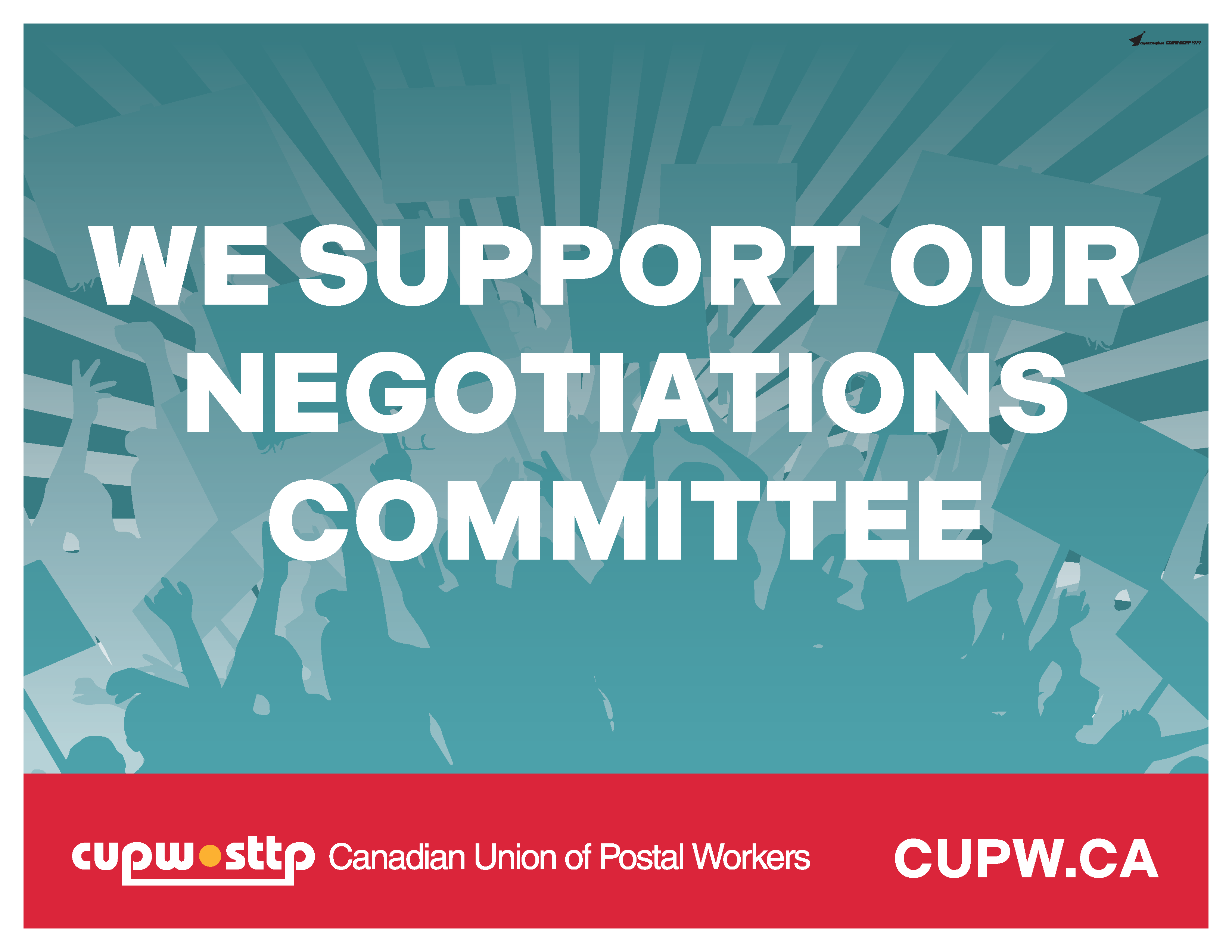
Ratification votes are happening across the country and several questions are being asked about different sections of the renewal agreement and the tentative MOAs between CUPW and CPC for the Urban and RSMC units.
The RSMC Clawback of PCI Payments
1. Question: Is it possible the PCI overpayments will be clawed back after the contract expires?
Answer: No. CPC has acknowledged that it is clear to them that they are “forgoing” the money that they feel they could have recuperated in relation with parcels paid and not delivered during the renewal of the collective agreement. This is consistent with our interpretation of point #7 of the RSMC MOA. CPC further stated that RSMC who are currently clawed-back some money for a reduction of PCI’S would see the recovery stopped at ratification and CPC would not go back and resume clawing back the presumed debt after the 2-year renewal. This commitment is enforceable in front of an arbitrator if CPC does otherwise. This protection, like all of the provisions in the tentative agreements, will only be activated if the tentative agreement is ratified.
2. Question: Why is the PCI clawback for RSMCs important to address now?
Answer: Because the clawback has started and many RSMCs will lose money if we wait. Due to the pandemic, parcel volumes greatly increased, and it is uncertain that the volumes will remain as high for the foreseeable future. In that context, a high number of RSMC risk seeing a reduction in PCI and therefore have significant amounts to reimburse. We need to stop this now!
Our Past Wage Experience
3. Question: Have our past wage increases kept up with the cost of living?
Answer: Yes. Following the merger of the bargaining units, the first urban collective agreement, took effect as of February 1, 1995. From February 1, 1995, to February 1, 2021, inflation increased 59.7%. During the same period wages of postal clerks/letter carriers/MSCs increased 71.0% and MAM11/VHE9 wages increased 76.7%.
Temporary Wages:
4. Question: Are urban temporary employees paid the minimum rate in Schedule A?
Answer: Some are paid the minimum and some are paid more. All temporary employees start at the minimum rate. However, since 2019 any urban temporary employee who has worked 1,000 hours in a calendar year goes up on the increment scale. Example: The current starting rate for a letter carrier/postal clerk/MSC is $21.80. However temporary employees who worked 1,000 or more hours in 2020 are currently paid $22.86 per hour.
The Postal Banking Partnership:
5. Question: Should CUPW support CPC’s new financial services even though it is in a partnership with a bank?
Answer: Yes. We support this important move forward to expand financial services and eventually move to a full-scale postal bank.
CUPW has always been clear we will continue to struggle for an independent postal bank. However, we have always recognized that, like many postal banks, it may be necessary to start with a partnership with a bank or a credit union.
Here is what the CUPW Postal Banking Fact Sheet says about partnerships: “What would a postal bank look like?There are many different models of postal banking. Some postal administrations set up their own bank. Others act as a financial intermediary by providing services in partnership with banking and other financial institutions, such as credit unions. In this instance, they work with one or a number of institutions, which operate nationally or in different regions. Some postal banks deliver a broad range of financial services, while others provide a more limited offering.”
See: https://www.cupw.ca/en/campaign/resources/postal-banking-%E2%80%93-bank-everyone-fact-sheet
According to a 2016 report by the Universal Postal Union, 76 percent of postal operators that offer financial services (139 out of 183) do so in partnership with a financial institution.
Job Security
6. Question: How does the tentative agreement improve job security for junior employees?
Answer: In the urban tentative agreement the dates in the job security clauses will be moved forward and many more junior employees will be covered under the Job Security clause 53.01. Currently 53.01 of the Urban collective agreement clearly states that all regular employees employed as of June 1, 2020, are entitled to full (40 km radius) job security. The tentative agreement moves this forward to the date of signing. This ensures that all workers obtaining regular positions between June 1, 2020, and the date of signing will be covered by full job security, even if they don’t have 5 years of continuous service, as of the signing of the agreement. This is a clear, important, and unambiguous gain for these members and the bargaining unit as a whole.
Access to information
7. Question: Is Access to Information actually important?
Answer: Yes, access to information for Group One was identified by CUPW as one of the 2018 top 10 strike issues. Access to information is necessary to enable us to fully implement the Group 1 staffing provisions of the collective agreement. We achieved Access to Information for Group 2 in the 2016 negotiations, but we were unable to get it for Group 1. Our August 24, 2016, Bulletin said “access to information is key if we want to ensure the proper application of the collective agreement”. In our strike vote tabloid in 2018 access to information for Group 1 was identified as one of the top 10 strike issues. This will allow more Part-Time employees to have access to Full-Time jobs and Temporary employees achieving indeterminate employment.
